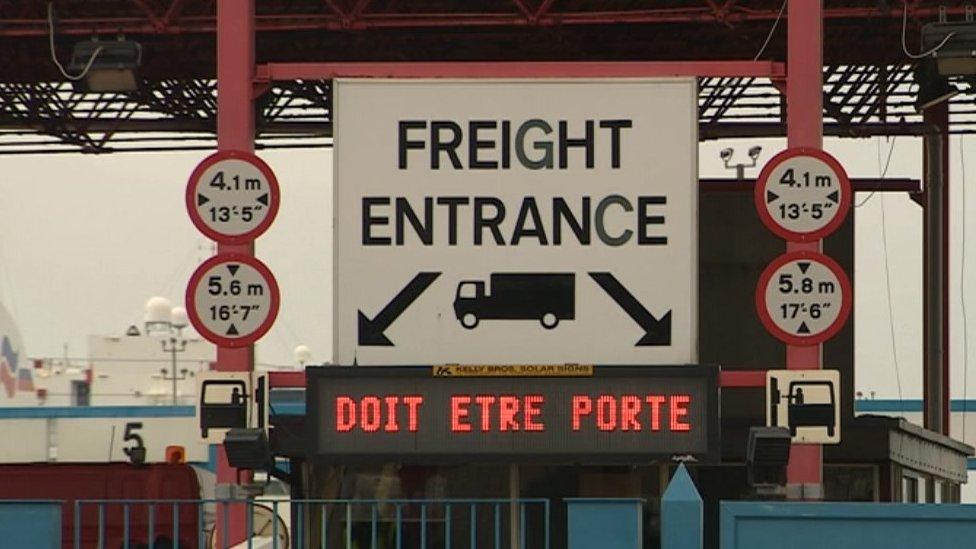Brexit: Animal border post 'too expensive' for Portsmouth port
- Published
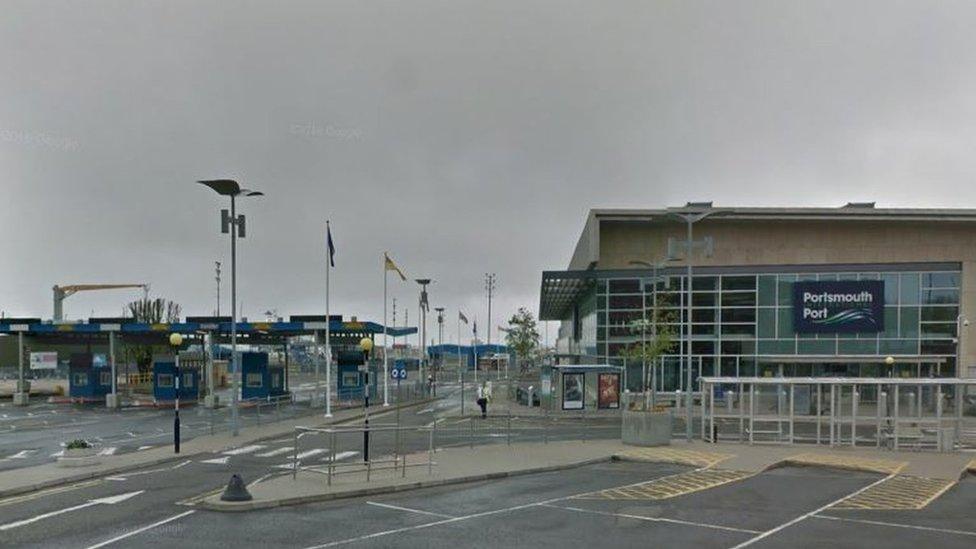
Portsmouth International Port is used by passenger ferries, cruises and cargo ships
A live animal border control post needed due to Brexit will not be built at Portsmouth International Port.
Owners Portsmouth City Council said a shortfall in government funding meant it could not afford the facility, which would allow vets to approve the import of animals into the UK for breeding.
The National Farmers' Union (NFU) said imports and exports of live animals would be disrupted after 1 July.
The government said the breeding sector was not wholly dependent on Portsmouth.
According to NFU statistics, the UK imports around £10m of high-value sheep, cattle, pigs and goats for breeding.
In a report for a cabinet meeting, external on Tuesday, the NFU said: "The absence of BCP facilities in the EU channel facing port will mean that UK farmers are unable to export high value breeding material to the EU."
It comes after the UK became a third party country for trading with the European Union on 1 January.
In response ports must have the infrastructure in place by July to meet the government's Border Operating Model, external.
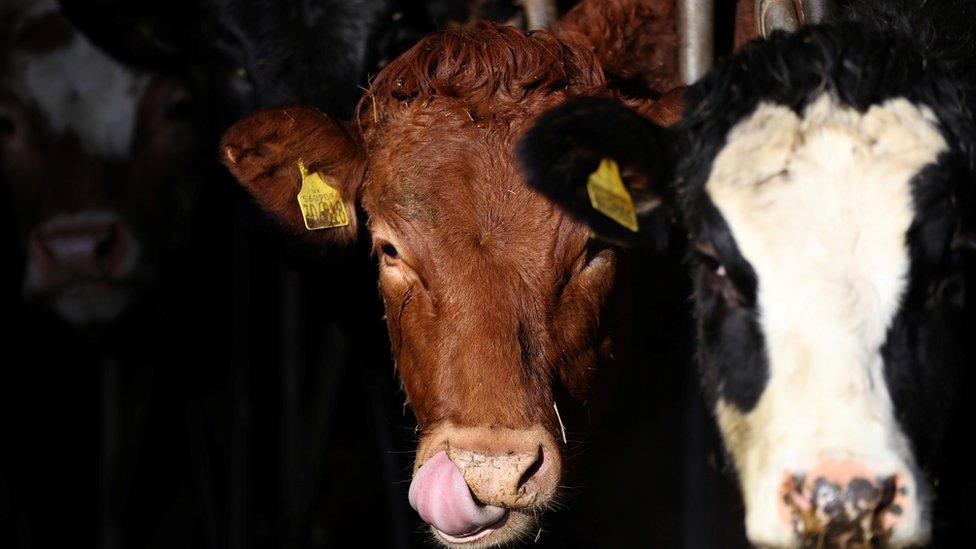
The NFU said imports and exports of live animals would be disrupted
But Portsmouth City Council said the livestock border post would cost £7m, which it could not afford after the government only provided £17.1m of the £32m it had bid for.
John Royle from NFU told the meeting: "At the moment we have no options to export, and from 1 July we will have no options to import any animals."
Building a border control post for food and goods of animal origin will go ahead, despite a £5.2m funding gap, port director Mike Sellers said.
Council leader councillor Gerald Vernon-Jackson told the meeting: "To expect any organisation being a council or a private company to build a £7m facility to facilitate a trade which to them is worth only £23,000, no company would ever do that.
"If the government wants this trade to continue they need to fund this, and at the moment they are not."
The government said live animal BCPs will be set up at other ports, and infrastructure would normally be funded by ports themselves.
A spokesman said: "A number of UK Border Control Posts will be designated for live animal imports including Dover, Sevington (Eurotunnel) and Holyhead, which are the ports with the highest volumes of animal imports from the EU."
Related topics
- Published12 January 2021
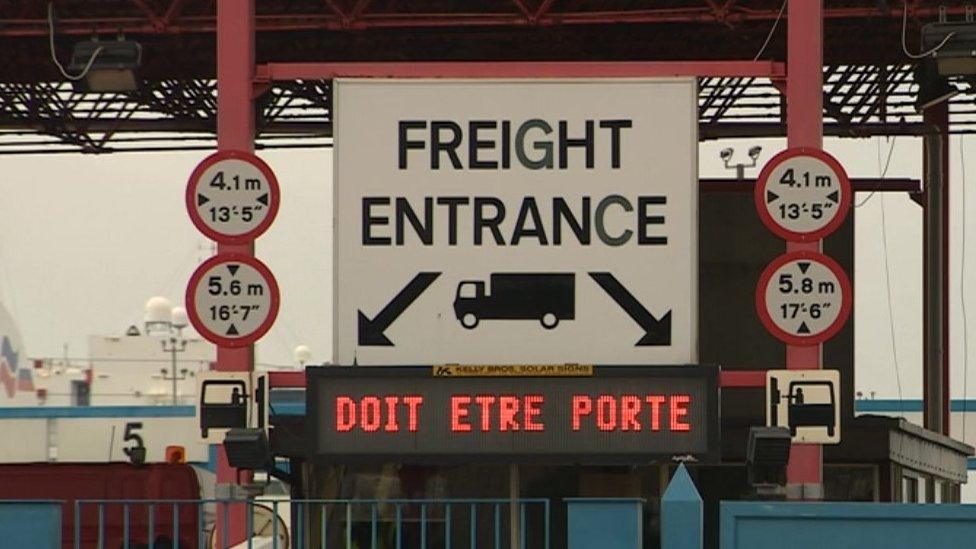
- Published28 January 2021
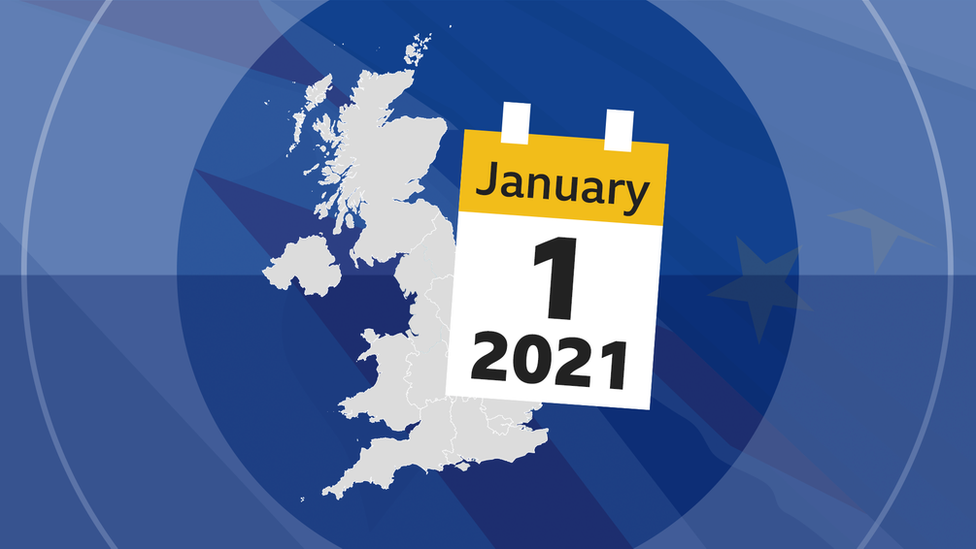
- Published21 December 2020
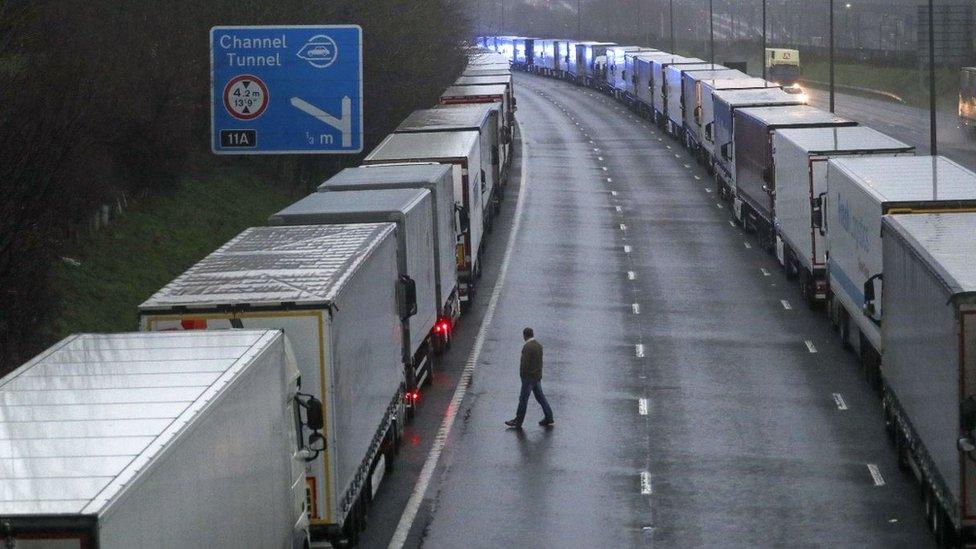
- Published17 November 2020

- Published22 May 2020
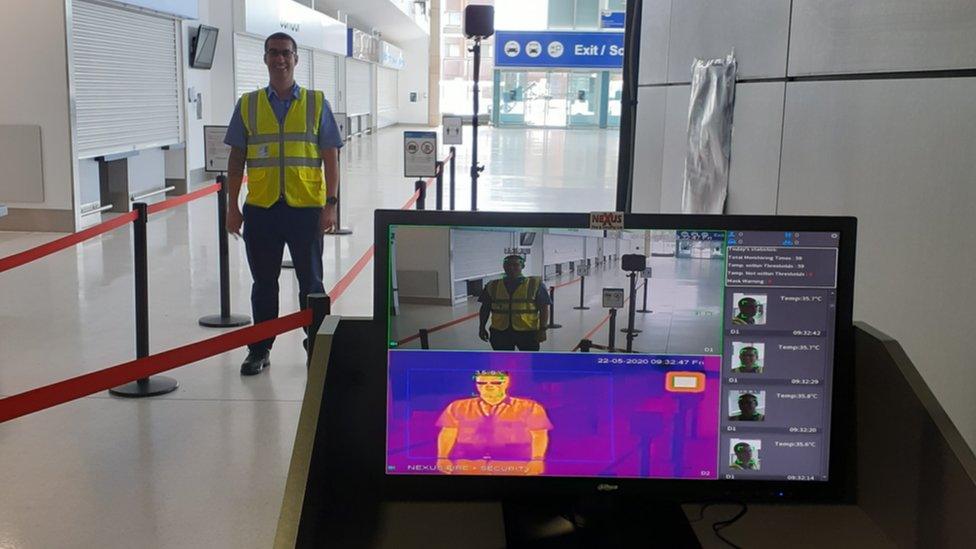
- Published8 October 2019
